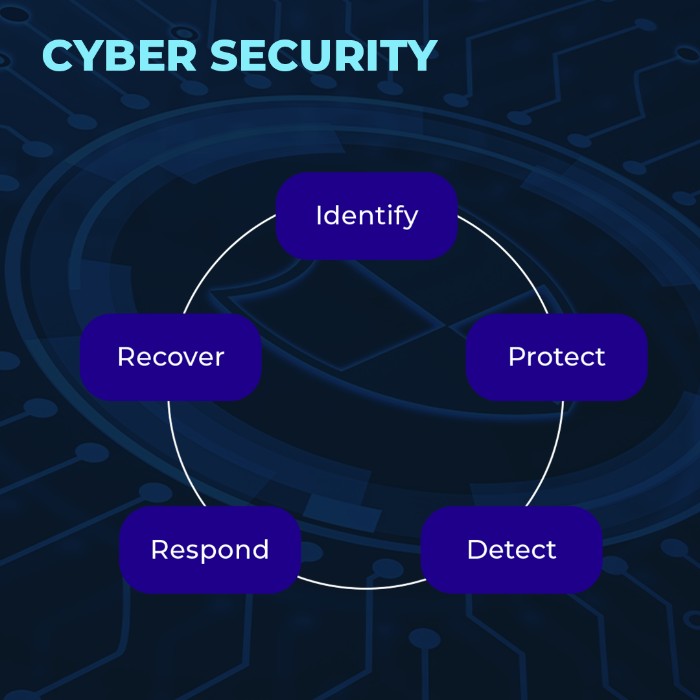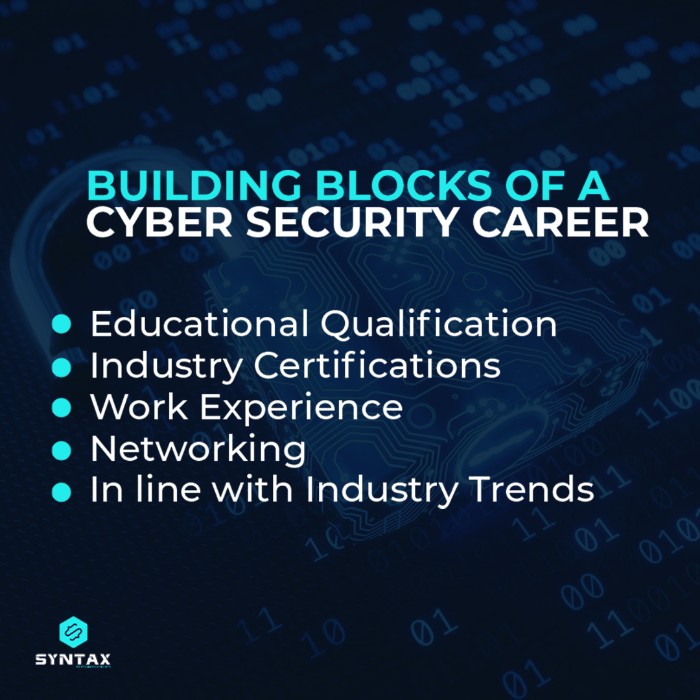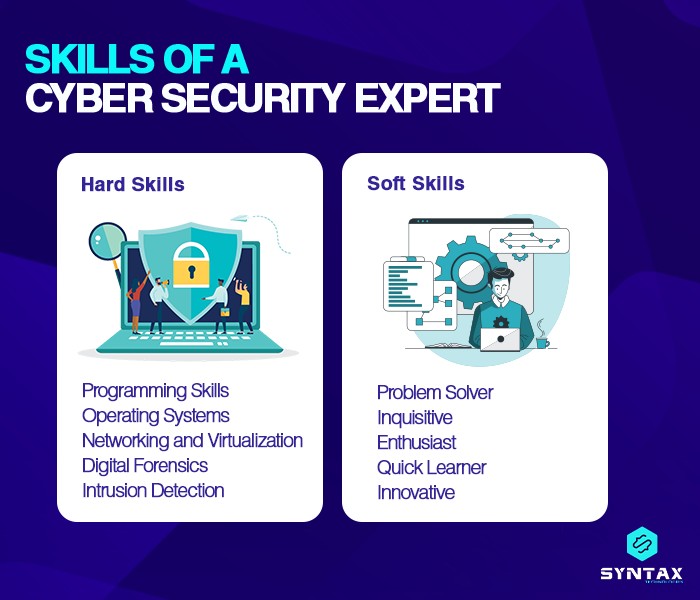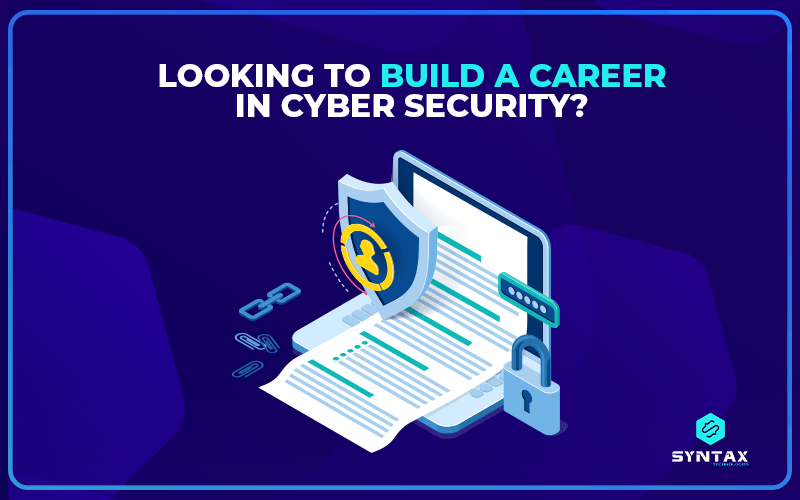Cyber Security is of utmost importance in today’s digital age. With more and more essential operations, communications, and transactions taking place online, it is critical to ensure that these activities are secure from any malicious actors or cyber threats. This makes the field of Cyber Security a highly sought-after profession as organizations around the globe strive to protect their data and networks from potential attacks.
Building a career in this field can be both rewarding and challenging, as it requires specialized technical knowledge as well as a commitment to keeping up with the latest trends in technology.
In this blog, we strove to provide a step-by-step guide on how to build a successful Cybersecurity career. At the same time, it is important to understand that while considering a career in Cybersecurity, it is equally important to be aware of the Cybersecurity job opportunities, the skills required to launch a successful career in Cybersecurity as well as the benefits and future of Cybersecurity career paths.
What is Cyber Security and What do Cybersecurity professionals do?
Cyber Security is the practice of protecting computer systems, networks, and programs from digital/cyber attacks. It involves defending organizations from malicious actors who may target their sensitive data or disrupt their operations.
Cyber security experts are responsible for developing and implementing procedures to protect a company’s systems, networks, and data from unauthorized access, modification or destruction. They also monitor networks for suspicious activity (network security) and respond quickly when an attack occurs by taking steps to limit the damage done.

From encrypting data to monitoring networks for malicious activity and cyber attacks, Cyber Security professionals play a vital role in safeguarding the digital assets of their employers.
They identify security risks and security incidents associated with computer systems and networks and work to develop mitigating strategies. Cyber security professionals also use various tools such as firewalls, antivirus software, encryption technologies, authentication protocols, documentation intrusion detection tools, vulnerability scans and other methods to keep systems secure.
Eligibility criteria for starting a Cyber Security career
To start a career in Cybersecurity, it is important to meet certain eligibility criteria which will help you gain an edge in the competitive world of cyber security professionals.
Firstly, those seeking to enter this domain must have an aptitude for technology and IT related areas such as coding and software development.
It is also important to have some formal education in cybersecurity or other computer-related topics such as networking, malware analysis, security engineering, cryptography, or penetration testing. Certification courses in these fields are also beneficial when it comes to getting hired into cybersecurity jobs.
Apart from educational qualifications, employers usually look for candidates with experience in IT infrastructure and working knowledge of security protocols and secure systems. Those who possess problem-solving skills and are passionate about understanding the bigger picture when it comes to data security will be highly sought after in this field.
When considering a career in Cybersecurity, it is essential to be aware that having a specific degree is not necessarily required. Those looking to enter the field may benefit from a background in Data Science, Computer Science, IT, Machine Learning or software. The scope of Cyber Security is so wide that even those with an IT diploma have the opportunity to start their journey into this domain.
Different roles within the industry have varying educational requirements – entry-level jobs do not always require a bachelor?s degree in Cybersecurity, whereas more advanced positions might necessitate one or even a master’s degree.
How to initiate your Cyber Security career?
Develop an Educational Background
It is essential to have a strong educational background in Cyber Security-related fields such as computer science, data science, IT, networking or software engineering if you want to get started in this field.
There are many universities and institutes that offer specialized courses related to these topics. Additionally, those who have a diploma in IT or have taken up certifications related to Cyber Security can also benefit from these courses.
Acquire Industry Certifications
The next step is to acquire industry certifications that will help you stand out from the crowd when looking to begin your career path in the field of Cyber Security. Popular certifications include CompTIA Security+, CCNA CyberOps, CISA Certified Information Systems Auditor, and CISSP Certified Information Security Professional, among many others.
If you wish to read more in detail about some of the most popular Cyber Security Certifications, check out our blog on “Top 10 Cyber Security Certifications” (/blog/top-10-cyber-security-certifications)
It is important to note that some of these certifications require backgrounds in areas like networking or computer programming languages and may come with additional fees as well.
Gather Relevant Work Experience
Employers generally look for candidates who have relevant work experience. Therefore, it is important to gain some hands-on experience by working with an established Cyber Security firm or taking on internships related to the field to get a better understanding of the industry and how it works.
Additionally, those who have worked in IT infrastructure roles will also be able to use their knowledge when entering into a Cybersecurity career.

Engage in Networking Activities
Networking plays an important role when looking for jobs in any industry and this holds true for Cyber Security as well. It is essential for aspiring professionals to build connections with like-minded individuals by attending conferences, workshops, seminars and other events as it can help broaden their knowledge base and make them aware of job opportunities that may be available.
Stay Updated With Industry Trends
It is essential for professionals to stay updated with industry trends and the latest developments in Cyber Security to remain competitive in the job market. This can be done by reading up on articles, attending webinars, joining forums or subscribing to newsletters related to this field.
Additionally, gaining knowledge of new tools used in the industry will come in handy when looking for a job as most employers prefer candidates who are up-to-date with advancements in technology.
These steps will help anyone looking to start a career in Cyber Security gain the necessary skills and knowledge for success. With the right education, certifications, experience and contacts, individuals can navigate their way towards an exciting career in this domain.
Articles you might like:
How to learn Cyber Security?: Find the Answers
Is Cyber Security Hard?: Let us Find Out
Entry Level Cyber Security Jobs to Keep your Eyes On
What skills are needed for a Cyber Security specialist?
Strong Knowledge of Network Security
Cyber Security specialists should have an in-depth knowledge of network protocols, encryption methods and firewall configuration.
Computer Programming
Having familiarity with computer programming languages such as Python, Java, C++ etc., helps one to detect vulnerabilities and develop tools for securing networks.
Risk Management Skills
Cyber Security professionals need to be able to assess the risk of different online threats and take necessary action accordingly.
Analytical Thinking
Being able to think analytically and work through complex problems is a crucial skill for Cyber Security experts as they will often be faced with unexpected scenarios that require quick solutions.
Understanding of Data Protection Laws
Cyber Security professionals should be well-versed with data protection laws and regulations to ensure that their efforts comply with the legal framework.
Knowledge of Operating Systems
Cyber Security professionals need to understand how different operating systems work, along with their vulnerabilities and security features, so they can protect them from malicious activities.
Networking Skills
A solid understanding of network design and architecture is essential for Cyber Security specialists as it allows them to identify weak points in the system that could be exploited by attackers.
Strong Communication Skills
Effective communication skills are important for Cybersecurity experts as they must explain technical concepts to non-technical stakeholders in order to secure their support for various initiatives.
Documentation Skills
Documenting processes and procedures associated with the security of systems is important for ensuring that any changes made to a system are recorded in order to facilitate future troubleshooting.
Creativity
Cybersecurity professionals must be able to think outside the box when it comes to tackling complex problems as malicious actors often devise new ways of attacking networks. Therefore, having creative problem-solving skills is essential for cybersecurity experts.

These are some of the key skills needed by Cyber Security specialists in order to successfully protect an organization from potential threats and data breaches. With the right combination of technical knowledge and soft skills, one can become a successful Cyber Security expert and make a great career out of it.
Jobs to consider in your Cybersecurity Career
- Chief Information Security Officer
The role of a Chief Information Security Officer (CISO) is to lead the organization?s cybersecurity initiatives and ensure that the IT infrastructure is adequately protected.
- Network Security Engineer
A network security engineer is responsible for designing, implementing, and monitoring an organization?s computer networks to ensure they are secure from unauthorized access.
- Certified Ethical Hacker/Penetration Tester
A penetration tester attempts to gain unauthorized access to systems and networks in order to evaluate the effectiveness of existing security protocols.
- Information Security Analyst
An Information Security Analyst is responsible for researching and analyzing threats to an organization?s computer systems, developing strategies to protect against these threats, and implementing security measures.
- Cyber Security Consultant
A Cyber Security consultant provides advice on cyber-related issues such as data protection, risk assessment, network security architecture design and compliance with industry standards.
- Forensic Investigator
A forensic investigator specializes in gathering digital evidence from computers, networks and other electronic media in order to investigate incidents of computer crime or misconduct.
- Incident Responder
An incident responder is responsible for responding to cyber threats and incidents as they arise, identifying any security vulnerabilities and working to mitigate them in order to keep systems safe from harm.
- Security Architect
A security architect designs secure networks and systems, ensuring that all aspects are compliant with industry standards and best practices. The security architect often works closely with other IT professionals to ensure the success of the projects they are involved in.
These are just a few of the many options available for those who wish to pursue a Cyber Security career. With dedication and hard work, anyone can become a successful Cyber Security professional and make a great career out of it.
The Benefits of a career path in Cyber Security
1. Job Security: Cyber Security is an ever-growing field, meaning that job security and job growth opportunities are both high.
2. Higher Salary: The average salary for a cyber security professional is higher than other professions in the IT industry due to the increased demand for qualified professionals.
3. Varied Work Environments: Cybersecurity jobs can be found in government institutions, law enforcement agencies, hospitals and healthcare systems as well as private businesses.
4. Variety of Roles: Cybersecurity has many different roles ranging from technical to managerial, allowing individuals to choose a role that aligns with their skills and interests.
5. Exposure To New Technologies: Working in cybersecurity exposes you to the latest technologies and tools, allowing you to stay on top of industry trends.
6. Professional Development Opportunities: Many organizations have professional development programs that can help Cyber Security professionals develop their skills and become more valuable in the workplace.
7. Impactful Work: Cyber Security professionals make a real difference by protecting organizations against potential threats and data breaches.
8. Flexibility: Many Cyber Security roles offer flexible working hours, allowing individuals to work remotely or outside of normal business hours if needed.
9. Career Advancement: Cyber Security offers many opportunities for career advancement, including becoming a leader within the field or excelling in project management roles.
10. Job Satisfaction: Cyber Security jobs are highly rewarding due to the impactful work, variety of roles, and professional development opportunities.
Conclusion
Cyber Security is an ever-growing field that offers many opportunities for those who wish to pursue a career path in this area. It provides job security, higher salary and professional development opportunities, as well as exposure to new technologies and varied work environments.
With dedication and hard work, it is possible to become a successful Cyber Security professional and enjoy a fulfilling career. All these benefits make pursuing Cybersecurity careers an attractive option for many people.
As one of the best online training providers, Syntax Technologies helps you acquire Cyber Security skills within a short span. Enrol today for our Cyber Security course.

